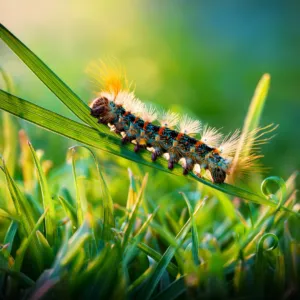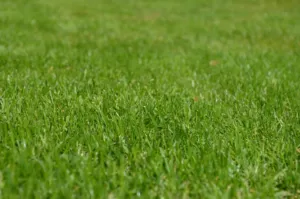How to Prevent & Eliminate Armyworms Before They Destroy Your Grass
Sound the alarm! Armyworms may be marching across Alabama lawns, leaving destruction in their wake. These pests can destroy grass overnight, leaving it brown and ruined.
Fortunately, our new armyworm prevention service stops these bugs BEFORE they ever invade. Guaranteed! So your neighbors may get them, but you won’t. And if you still somehow see them after our preventative treatment, we’ll come back to eliminate them for FREE.
If you’ve noticed sudden lawn damage and want to get rid of existing armyworms, call TDI Services! And keep reading to learn more about identifying, preventing, and treating them.
What Are Armyworms?
Fall armyworms are voracious caterpillars that feed on grass blades. After they feast, lawns look scorched or dead. Because unlike other lawn pests, armyworms swarm in large numbers, consuming grass in days or hours.

Why Are Armyworms a Lawn Nightmare?
Unfortunately, armyworms thrive in lush lawns, so healthy grass is a prime target. Here are some more reasons why homeowners hate them:
- Voracious eaters. They consume everything in their path, turning lawns brown overnight
- Big groups. If you see one, there’s likely a lot more coming
- Booming populations. Three or more generations can attack in a season since each wave takes about 30 days
- Creepy crawlies. These nasty-looking pests turn beautiful lawns into eyesores
How to Identify Armyworms in Your Lawn
Spotting armyworms early is key to preventing severe damage. Here’s what to look for:
Physical Appearance
- Color: Green, brown, or black with distinct stripes along their bodies
- Size: Start tiny (1/8 inch) but grow up to 1.5 inches long
- Head marking: Inverted “Y” shape on their heads (a key identifier)
- Movement: Crawl in large groups, often hiding in soil during the day
The best time to check for armyworms? In the early morning, late evening, or after it rains. They avoid midday heat and increase their activity after rainfall.
Signs of Armyworm Damage in Lawn
Armyworms chew grass blades down to the stems. The following signs may prove that armyworms are eating your yard.
- Brown, irregular patches that may be mistaken for drought stress
- Thinning turf that looks “eaten” rather than dry
- Visible caterpillars, especially near damaged areas
- Increased bird activity since birds feed on armyworms
If left untreated, a severe infestation can kill newly seeded grass and weaken established lawns.
How to Get Rid of Armyworms
Manual Removal
It’s possible to handpick worms at dawn/dusk and drop them in soapy water. However, it’s a labor-intensive task that might not kill each one in your yard. Keep in mind that any armyworms you miss can easily create future generations.
Chemical Treatments
This is the fastest and most effective solution, especially for severe infestations in Alabama. We offer preventative and curative treatments, so we can stop armyworms before they start and get rid of them if they’re already in your lawn.
The family-friendly treatments we use are long-lasting as well. So you can rest assured that the armyworm population will continue to decrease.
How to Prevent Armyworms from Returning
Prevention is easier than treatment. Keep armyworms away with these proactive strategies:
- Contact TDI Services! Our preventative treatment is guaranteed to work.
- Mow regularly
- Avoid over-fertilizing
- Encourage natural predators
- Monitor with sticky traps

FAQs About Armyworms in The Lawn
Why do armyworms seem to be everywhere?
With how well they fly as mature moths, they can travel long distances, especially with strong winds or hurricanes.
When do armyworms come out in Alabama?
Armyworms typically start to appear and do damage in the late summer and early fall.
Will grass grow back after armyworm damage?
Yes, if the roots are intact, most lawns recover with deep watering, light fertilization, and overseeding bare patches.
Are armyworm treatments harmful to pets?
Our armyworm applications are suitable for pets once dry, but you should try to keep animals off treated areas for 24–48 hours.
Why are armyworms worse in some years?
Weather and migration patterns are two of the main reasons. Warm, wet summers boost populations and wind currents impact where the moths end up after traveling hundreds of miles.
Win the Armyworm Battle Quickly!
Armyworms spread rapidly, so early detection and treatment are critical. Prevention is the best option, but if you see brown patches, chewed grass, or caterpillars, take action immediately.
Call your local lawn care and pest control services in Robertsdale, AL at TDI Services. With highly trained technicians and industry-leading products, we’ll take steps to help achieve your dream yard.
